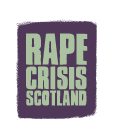
Rape Crisis Scotland Discussing Women and the Cost-of-Living Crisis
15.11.2023
After over a decade of austerity in the UK, the cost-of-living crisis could hardly have come at a worse time. Scotland remains an unequal country with very high levels of poverty. As an organisation that primarily serves women, we’re acutely aware of the disproportionate impact poverty has on women. This is an impact our 17 member centres are seeing first hand, every single day.
Women are more likely to do low-paid work, more likely to rely on public transport (the costs of which are soaring) and are more likely to struggle with high childcare prices. Women of colour, disabled women and women in other marginalised groups continue to face particular social disadvantages.
According to research by organisations such as Engender and the Scottish Women’s Budget group women are the “shock absorbers of poverty” – spending a huge amount of time, energy managing rising costs and often going without food, heating, clothing, and travel to healthcare appointments to provide for others.
The Fawcett Society produced research in 2022 which found that over two thirds of women (68%) had struggled to pay their household bills in the past 6 months, rising to 80% of minoritised women.
Women are twice as dependent on social security than men and have less access to resources, assets like home ownership, and occupational pensions. As such, women are disproportionately impacted by welfare reforms. According to the Women’s Budget Group, over the decade of austerity between 2010 and 2020, 86% of ‘savings’ made from cuts to social security will come from women’s incomes.
Poverty and bad quality and insecure housing and employment all create trauma and poor emotional wellbeing and contribute to a risk of gender-based violence. The cost-of-living crisis has only deepened these inequalities.
Rape Crisis Centres across Scotland have been taking steps to ensure that every survivor who reaches out for support is able to access it, and that their needs are met after they have left the Centre. This can mean providing food larders in centres to support survivors unable to meet the cost of food, offering beauty bags to help survivors with self-care, partnering with the Fuelbank Foundation to support survivors living in fuel poverty and much more.
But Rape Crisis Centres should not be having to fill these gaps. We need to see sustainable solutions so that nobody is left struggling with basic costs of getting by and that where people do have needs, these needs are met by properly resourced services. We also need guarantees of long term, sustainable funding for Rape Crisis services so that survivors can access specialist support when they need it.
Poverty and experiencing financial difficulty are also significant barriers to accessing justice. Complainers currently do not have the right to receive independent legal representation free of charge. This means that expert legal advice, which can make all the difference to a survivor’s experience of going through the justice system, is the preserve of those who can afford it. Justice should not have a price tag, least of all one which is beyond the reach of so many.
Floating trial dates and lengthy court delays are difficult for any survivor. For survivors experiencing poverty, they are even harder to deal with. Not knowing exactly when your case will be called to court means being forced to take time off work, arranging transport, and childcare at short notice. This simply isn’t an option for many survivors.
The National Advocacy Project works across Scotland and provides free support to survivors going through the justice system. Advocacy Workers can support survivors throughout the entire justice process, from considering making a report right up to, and after, a trial’s conclusion. Demand for advocacy services is extremely high. In 2022-23, the National Advocacy Project supported 3,764 clients.
All support from Rape Crisis Centres and Rape Crisis Scotland is free and always will be. The Rape Crisis Scotland helpline is open daily from 5pm – midnight and offers confidential short-term, crisis and initial support by phone, email, webchat and text. Our helpline team can arrange for language interpreters, including British Sign Language, for free.

For more information on what your local Rape Crisis Centre can offer, contact them directly.
Rape Crisis Scotland – 15 November 2023